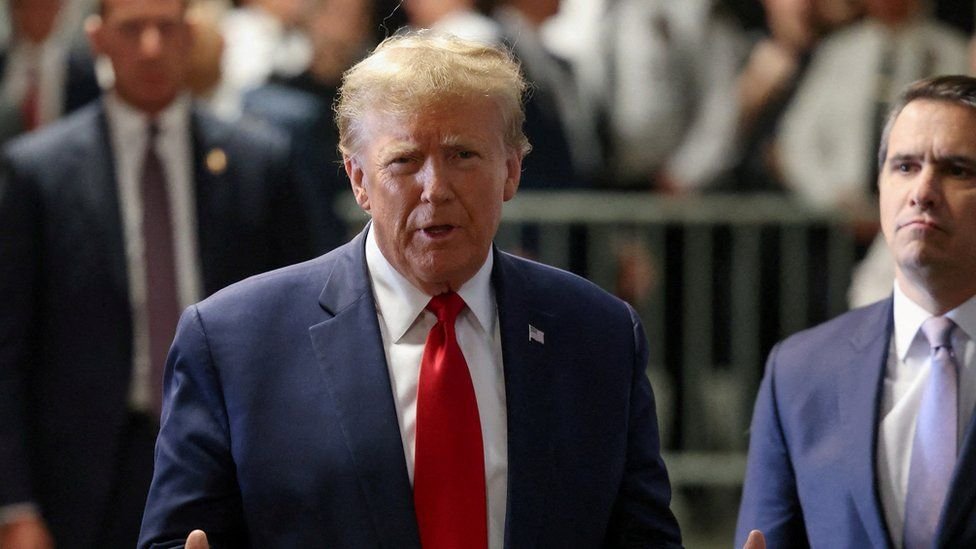In the realm of American politics, the public’s access to their leaders’ thoughts, actions, and decisions is paramount. However, the approach to communication can vary significantly from one administration to another. One noteworthy aspect of former President Donald Trump’s communication strategy is his penchant for holding rallies while shying away from traditional news conferences.
Purpose of Rallies
Trump’s rallies serve as a cornerstone of his political engagement strategy. These events are meticulously orchestrated to energize his base, instill enthusiasm, and bolster support. By addressing fervent crowds of supporters, Trump can rally his base, reinforcing their commitment to his leadership and agenda.
Avoidance of Media
In contrast to his predecessors, Trump’s relationship with the media has been notably contentious. He has frequently accused mainstream media outlets of bias and unfair treatment. Consequently, Trump tends to avoid formal news conferences, where he might face challenging questions or confrontations from journalists.
Lack of Accountability
News conferences traditionally offer a platform for journalists to pose probing questions to elected officials, holding them accountable for their actions and policies. By steering clear of such events, Trump minimizes the risk of being subjected to uncomfortable inquiries that could undermine his messaging or credibility.
Political Strategy
Trump’s preference for rallies over news conferences aligns with his broader political strategy. He excels in the role of a charismatic showman, thriving in front of enthusiastic crowds. By capitalizing on his strengths as a performer and communicator, Trump can maintain control over the narrative and project an image of strength and vitality.
Comparison with Past Presidents
Trump’s approach to communication stands in stark contrast to that of many of his predecessors. While previous presidents often engaged extensively with the press, Trump has adopted a more combative stance, preferring to communicate directly with the public through rallies and social media platforms.
Criticism and Controversy
Trump’s avoidance of news conferences has not gone unnoticed, drawing criticism from his opponents and some members of the media. Critics argue that his reluctance to engage in unscripted interactions with journalists reflects a lack of transparency and accountability, undermining the principles of democratic governance.
Public Perception
The perception of Trump’s communication strategy varies widely among different segments of the population. Supporters view his rallies as powerful demonstrations of leadership and a direct connection to the people, while detractors see them as divisive spectacles designed to stoke division and sow discord.
Media Coverage
Media coverage of Trump’s rallies and his relationship with the press has been a subject of intense scrutiny. Depending on the outlet, coverage may range from adulation to condemnation, reflecting the polarized nature of contemporary political discourse.
Alternative Communication Channels
In addition to rallies, Trump has embraced social media as a means of bypassing traditional media channels and communicating directly with his supporters. Platforms like Twitter and Facebook allow him to disseminate his message quickly and without filter, reaching millions of followers instantaneously.
Potential Shifts in Strategy
As political dynamics evolve and new challenges emerge, Trump’s communication strategy may undergo further adaptation. Factors such as changes in media consumption habits, shifting public opinion, and developments within the Republican Party could influence the trajectory of his approach to communication.
Trump’s preference for rallies over news conferences reflects his distinctive communication style and political strategy. By sidestepping traditional media channels and engaging directly with his supporters, he can control the narrative and maintain a strong connection with his base. While this approach has its advantages, it also carries risks, including accusations of avoiding accountability and exacerbating polarization. As political dynamics continue to evolve, Trump’s communication strategy will likely remain a subject of debate and analysis.
FAQs
- Why does Trump prefer rallies over news conferences?
- Trump favors rallies as they allow him to connect directly with his supporters and control the messaging without facing challenging questions from journalists.
- Does Trump’s avoidance of news conferences affect his relationship with the media?
- Yes, Trump’s avoidance of news conferences has strained his relationship with the media, leading to accusations of avoiding scrutiny and undermining transparency.
- How do Trump’s communication strategies compare to those of past presidents?
- Trump’s communication strategies diverge from those of past presidents, emphasizing direct engagement with supporters through rallies and social media rather than traditional press conferences.
- What role does social media play in Trump’s communication with the public?
- Social media platforms like Twitter and Facebook serve as crucial channels for Trump to communicate directly with his supporters, bypassing traditional media outlets.
- Are there potential consequences for Trump’s approach to media engagement?
- Yes, Trump’s approach to media engagement may have consequences, including accusations of avoiding accountability and exacerbating polarization, which could impact public perception and electoral outcomes.
